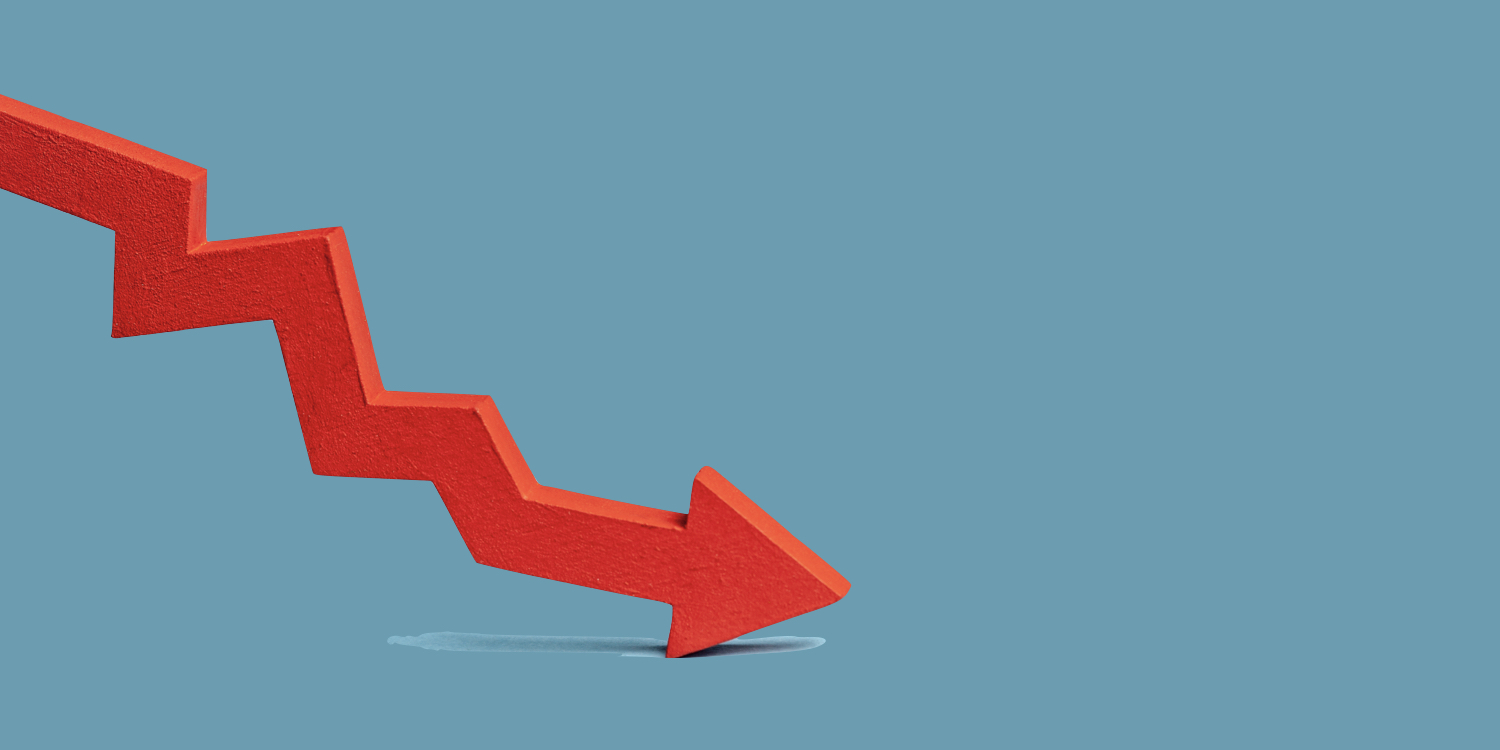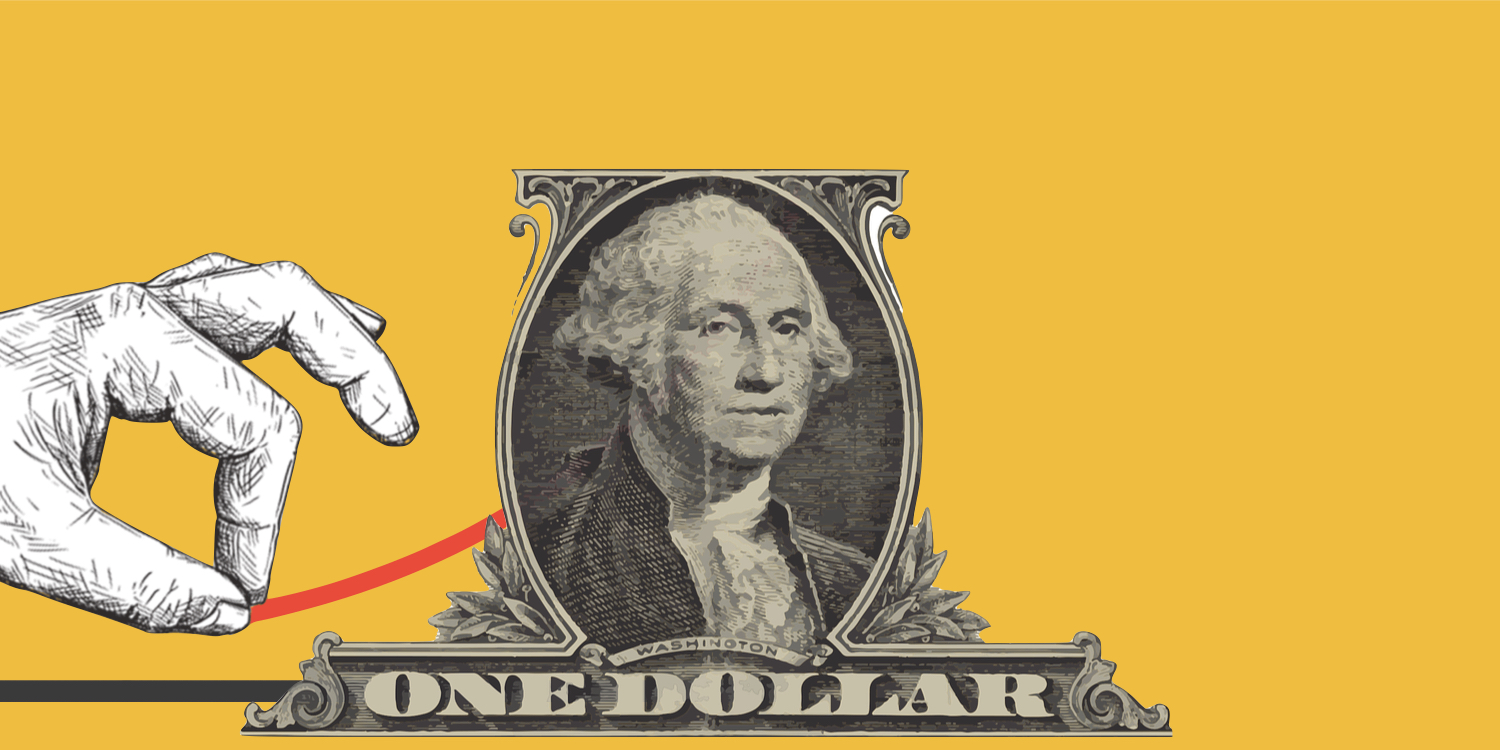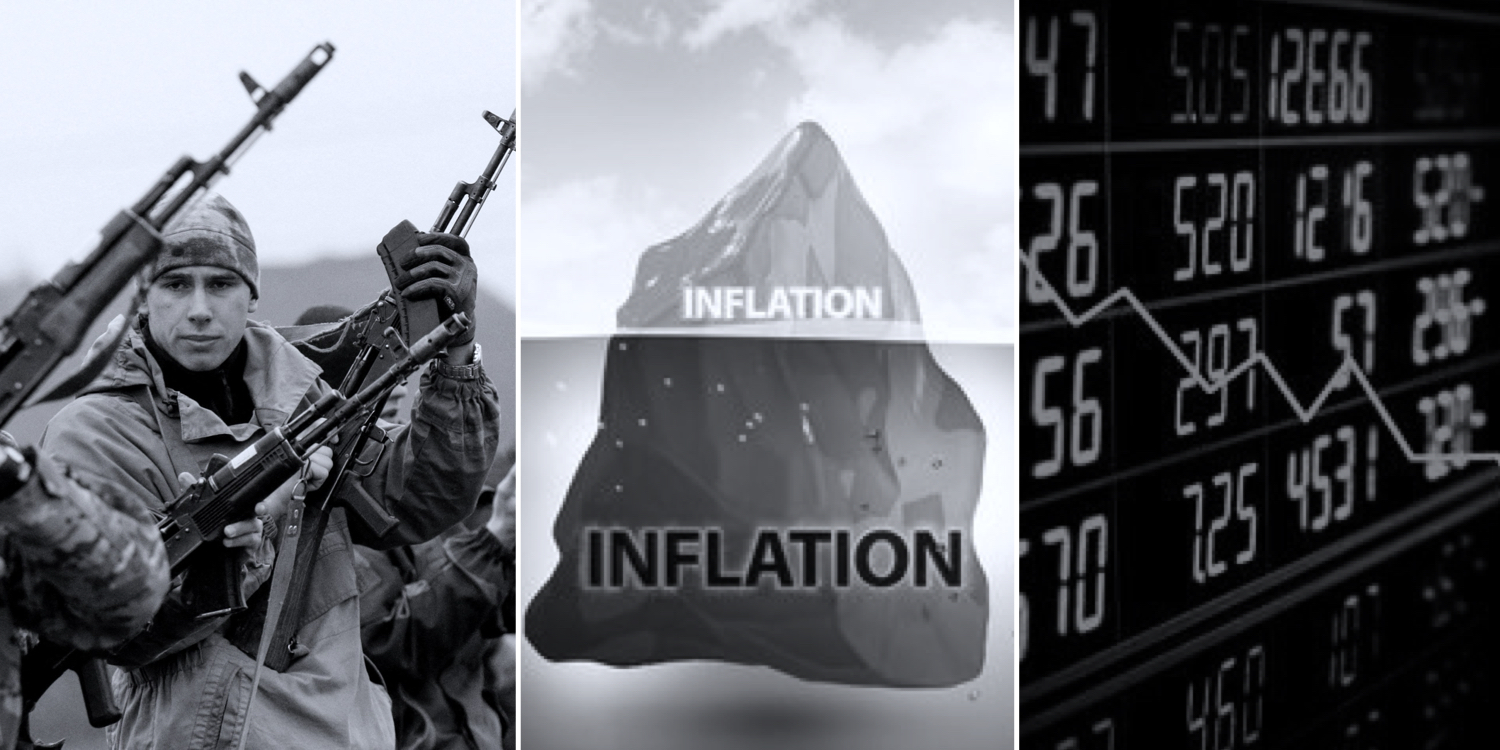Fannie Mae is the latest agency to downgrade its outlook for the U.S. economy and housing market.
Continue readingUS Treasury Yield Inverts: Is a Recession Coming?
The US Treasury Index Inverted last week. Is this a sign of a coming recession?
Continue readingDo Reverse Mortgages Transform Home Debt into an Asset?
Inflation is at its highest level since 1982
The latest inflation numbers are out and they’re downright unsettling, especially for retired Americans living on a fixed income.
Last week inflation in the U.S. jumped to its highest level since January 1982. CNN Business reports the Consumer Price Index rose 7.9% in the last 12 months. The Bureau of Labor Statistics tracks consumer costs using what’s called a ‘basket of goods’. That basket is heavily influenced by housing and rental costs, food, and energy costs; each of which has skyrocketed in the last year.
For example,
It’s time for retirees to prepare for war, inflation, and stock market losses
The world can be a frightening place for savers and non-savers alike. The Russian invasion of Ukraine and a teetering stock market…
Continue readingPrepping for Inflation and an Uncertain Economy with a Reverse Mortgage
Why reverse mortgages are more important than ever during economic uncertainty
Much damage has been to the U.S. economy in the last two years. The Covid-19 pandemic coupled with shutdowns, and central banks’ efforts to stimulate the economy have left the financial markets and world economies on the precipice of a deep recession or worse.
Just as economists in 2007 didn’t see the signs of the 2008 financial crisis, today most economists predict a “return to normal”. However, one man sees things differently. Ray Dalio, a billionaire investor who founded one of the largest hedge funds predicted both the 2008 housing and financial crisis and the fallout from the coronavirus pandemic.
On CNBC’s Make it Dalio warned that a new economic collapse is at hand. Such a prediction is not as far-fetched as one may imagine with Russia amassing troops for a possible invasion of Ukraine and China’s repeated threats to invade Taiwan. War is an expensive business. With inflation already at a 40-year high, Americans are now beginning to feel the brunt of price hikes and supply shortages. And should the Federal Reserve accelerate interest rate hikes, the financial markets are likely to fall leaving retirees in a precarious position.
Amidst this doom and gloom, there stands a glimmer of hope for older homeowners and retirees.
Is There a Looming Inflation Spike?
While economic stimulus measures stopped further economic damage in the early days of the pandemic it certainly comes at a cost. That cost is inflation should there be too many dollars chasing American goods and services. However, almost as if defying economic gravity U.S. inflation remains below its two-percent target. Certainly, there was a noticeable spike in food prices early this spring…
Continue readingUp in the Air: Airline employees face furloughs
Up in the Air
There’s much that’s uncertain in these turbulent times. One group that’s facing looming financial uncertainty is the nation’s airline employees. Airlines are poised to shed tens of thousands of workers as federal aid backstopping the industry stops October 1, 2020. American Airlines and United plan to furlough 19,000 and 16,000 workers respectively. A federal prohibition of airline furloughs and a massive $25 billion cash infusion to cover payroll have delayed the inevitable until the first day of October.
While the Federal Reserve continues to print money at a feverish pace, the truth that is the fiction of ’employment recovery’ is reaching its final chapter. Captain Jetson, an online airline/aviation publication, serves up inside industry information and tips for those employed in domestic air travel. Jetson’s August 22nd column warns airline professionals of the impending deadline and what potential strategies may help ease the financial fallout of unemployment.
When it comes to ‘income matters’ Captain Jetson suggests pursuing one or all of the following plans of action:
- Pursue state unemployment benefits & programs
- Having a working spouse or partner increase their working hours
- Applying for military benefits if applicable
- Consider applying for a reverse mortgage and/or beginning to take Social Security payments

While the age distribution of airline employees is somewhat murky we can safely surmise that there may be a significant number of older workers who did not take an early retirement package earlier this spring who are facing economic uncertainty. Many are longtime homeowners anxious as to how they will afford monthly mortgage payments or find the cash to meet their daily expenses.
Unions representing airline employees are highly-motivated to present members with potential solutions, especially those facing a forced furlough in two short weeks. Despite most airline pilots not being able to fly after age 65, the vast majority of airline personnel are found in ground crews and support staff. Contacting your nearest airline labor union could be the first step in getting in front of members 62 and older who may want to leverage their home to weather a season of unemployment or simply retire altogether.
What other industries in your area are dependent upon federal aid that may expire? What business plan will you develop to help these older workers facing unemployment?
Regardless, now is the time to make your presence known and the powerful financial tool you offer older homeowners- all while home values remain at historic highs and interest rates reach their lowest benchmarks.
Up in the air? Much may be but as Captain Jetson advises industry workers in its column, ‘develop a plan of action- NOW’.
Lean Times
As dividends fall the cost of living continues to climb
“It was the best of times, it was the worst of times, it was the age of wisdom, it was the age of foolishness.” – Charles Dickens ~ A Tale of Two Cities
While Dickens’s opening lines are not prescient they certainly could describe the current state of affairs in which we find ourselves. Lenders are seeing a significant rebound in consumer interest as evidenced in new application activity, as several retirees and seniors face lean times seeing the coronavirus continue to spread across the globe.
Today long-term inflation remains moderate, however, food prices jumped significantly this quarter as supply chains were temporarily interrupted due to the COVID-19 pandemic. NBC reported that beef prices jumped 20.4% from April to July. Everyone is feeling the squeeze- the mass affluent, middle class, and low-income older homeowner.
However, beyond daily expenditures seniors who dutifully saved are feeling the brunt as well. Millions of older Americans count on dividends to make ends meet. These shareholders are seeing dividend payouts slashed as over 700 publicly traded companies seeking to preserve cash in an uncertain economy announced a reduction or suspension of dividends. For example, last month MarketWatch noted the highly-touted Halliburton (HAL) slashed their quarterly dividend payouts 75% in May to 18 cents a share. The Janus Henderson asset management group sees this trend continuing. In its recent Global Dividend Index report, Janus projects dividend payouts will decrease between 15-34% by the end of 2020.
Consequently, older homeowners with substantial investments who rely on dividend payouts and those whose home is their most significant asset are facing lean times; both will need a source of funds to bridge the gap. Investors may be forced to tap into their cash savings or worse, sell stocks at a significant loss. Moderate and lower-income senior homeowners have limited options and are likely to begin viewing their home’s equity in a new light.
Americans are an optimistic lot not naturally inclined to anticipate unnerving ‘what-if’ scenarios. However many ancient philosophers did anticipate potential outcomes practicing ‘premeditatio malorum’- which loosely translated means to ‘anticipate the worst and plan accordingly’. Reverse mortgage professionals can encourage this mindset by asking some simple questions. “How long would your cash reserves last if you continue to use them to cover monthly expenses?” “Do you have a plan if you no don’t receive any dividends this year or next?”. Those working with a financial professional may be hearing similar probing inquires from their advisor.
Your mission should you choose to accept it is to continually build momentum in presenting the reverse mortgage not as a cure-all for one’s financial woes, but simply as a valid and established potential solution which could help older homeowners weather the economic storm in which we find ourselves. Now is the time to schedule those financial advisor introductions you’ve been putting off or plan your first public seminar.
Fortune favors the bold, especially when opportunity presents itself in the midst of adversity.
What comes AFTER the Coronavirus?
A look at our industry’s growth and the potential economic repercussions of the COVID-19 pandemic
Sheltering in place took on a new meaning for HECM lenders in the first weeks of the coronavirus pandemic. Not only did employees and originators shelter at home, but many also hunkered down slowing their loan production as loan profitability collapsed in the secondary markets.
So what may we expect after the coronavirus or COVID-19 crisis is behind us? Our first indicators may be found in the proverbial eye of the storm that lies between the control of the virus’ spread and the anticipated long-term economic fallout in the decade that follows.
Today we examine 3 possible outcomes:
- Fewer property tax deferral programs for seniors
- Economic stagflation
- Technological innovation and adaptation
New Jersey Governor Phil Murphy’s plan would ax property tax aid for seniors
Wealth disparity and home equity
Wealth inequality, economic chaos & the role of home equity
Wealth and income inequality. Pulling back from the distasteful political debates that continue to rage on about the haves and have nots it is a clear and present reality. The Pew Research Center made these startling findings. “The wealth gap between upper-income and lower- and middle-income families has grown wider this century. Upper-income families were the only income tier able to build on their wealth from 2001 to 2016, adding 33% at the median.” Why such a disparity? Good question. “The reason for this is that middle-income families are more dependent on home equity as a source of wealth than upper-income families.” With home equity playing a crucial role for middle-income Americans reverse mortgages and equity-extraction loans will become even more essential.













